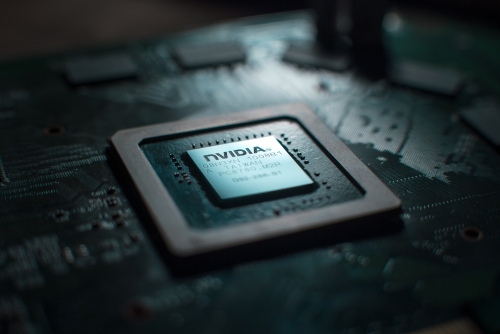Trump Targets Nvidia’s H20 Export! Nvidia Shares Drop 7% in After-Hours Trading, Nvidia-Related Stocks Tumble

Amid escalating U.S.-China trade tensions, the Trump administration has targeted Nvidia’s H20 chips, specifically designed for the Chinese market—by imposing new export licensing requirements., The move marks a further intensification of U.S. export controls on advanced technologies bound for China.
In a regulatory filing on Tuesday, April 15, Nvidia (NVDA.US), the leading supplier of AI chips globally, disclosed that the U.S. government now mandates an export license for any future export shipments of its H20 chip to China. This license requirement is effective immediately and applies indefinitely.
As a result, Nvidia announced a $5.5 billion inventory write-down and the cancellation of H20-related sales for the current quarter (Q1 of fiscal year 2026).
According to the filing, U.S. officials imposed the licensing mandate to mitigate the risk of Nvidia’s chips being used or diverted by Chinese supercomputers—an area of strategic concern amid technological competition between the two nations.
The news triggered a sharp market reaction. Nvidia shares fell 6% in after-hours trading. The ripple effect extended to its Taiwanese supply chain partnersThe ripple effect extended to its Taiwanese supply chain partners o the morning of April 16: Taiwan Semiconductor Manufacturing Company (TSMC, 2330.TW) dropped 1.60%, Hon Hai Precision Industry (Foxconn, 2317.TW) declined 1.43%, and MediaTek, Quanta, and Wistron also fell.
The H20 chip, although feature-restricted version of Nvidia’s flagship processors, remains powerful enough to support the development and deployment of advanced AI applications. It was specifically tailored to comply with prior U.S. restrictions while still serving the Chinese market.
Bloomberg reported that, as China is viewed as the United States’ principal competitor in artificial intelligence, there is heightened sensitivity around the national security implications of its exporting AI technology. The H20 chip has thus become a focal point in Trump’s increasingly aggressive trade policy toward China.
Commenting on Nvidia’s $5.5 billion write-down, analysts at Counterpoint Research noted that the figure was within expectations and, while substantial, is a loss Nvidia can likely absorb without major disruptions.
The consulting firm suggested that the move may be part of a broader negotiation strategy. Given the widespread impact on the U.S. semiconductor sector, they would not be surprised to see future exemptions or policy.
However, analysts cited by Bloomberg warned that Nvidia’s lead would result in a shortfall of 14 billion to 18 billion for the fiscal year. Nvidia’s data center business in China may return to levels seen in early 2024, before the expansion of H20 production.
* The content presented above, whether from a third party or not, is considered as general advice only. This article should not be construed as containing investment advice, investment recommendations, an offer of or solicitation for any transactions in financial instruments.


